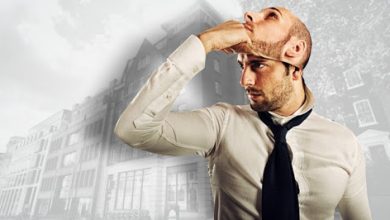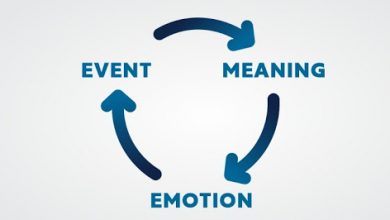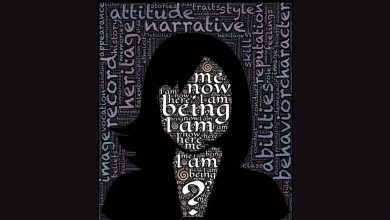Shedding old masks
Change is always a bit scary, in any arena. But when we talk about changing something that we truly identify with and that we believe is a part of our being and who we are, it can feel almost impossible. There comes a time for each of us when we need to reevaluate where we are and what we do, and see if it still represents who we want to be and serves our best interests. Being able to look at this objectively, and not let the allure of preserving our identity keep us tied to something that might have outlived its purpose or that may be weighing us down can enable us to live a happy and fulfilling life, and sometimes can even be an important survival skill.

Why did I choose this tool? The article referenced in this tool is one that jumped out at me at exactly the right time, a time of transition, reevaluation, and letting go of some things that I had held dear and thought were a part of me for a very long time. It inspired me to know that not only was I not the only one who felt this way, but that this painful process can have a happy ending (or rather journey continuation), and most of all that it is a completely natural part of a healthy and growth-oriented life. Knowing this gave me the courage to let go of what I was so desperately clinging to and start actually being open to the changes that I was already in the middle of but still resisting.
How does this apply to being a trainer? It’s healthy to step back from time to time and evaluate what we do and why we do it, and to be able to let go of any parts of ourselves that may be no longer serving us. It will help us to stay fresh and honest as trainers, and to be fully equipped to support the growing and learning process of others. It also helps us to empathize with those who might resist change or new ideas and mindsets, rather then criticize them. If it feels like death, who would want it right? But it also equips us to give them hope that on the other side of that apparent death is a beauty, growth and progress that could otherwise never be experienced.
Main content:
When Beth Clayton decided to give up acting in order to start a coaching business, even though she knew it was in her best interests, she says it felt like death. In her words:
My actor self was a mask, a costume I wore for many years. I believed I needed it to feel seen, to be admired, to become powerful. My talent and successes were proof of my worthiness to live and to be loved. The idea of taking them off instilled mortal fear.
The reason why a change in identity feels like death is because it is actually a kind of death. Our minds can’t differentiate between a real threat to our lives and a threat to the ego, so the feelings that correspond with a threat to the ego are just as intense as the ones we would have if our lives were threatened.
Perhaps that is the dance of letting go of our identities, our roles, our masks and our costumes. They become second skins, and even when they become painful and frayed, we feel we need them to be safe. We feel we need them to experience love, and breaking free may always feel like we are being exorcised from our bodies.
As someone who has experienced many shifts and “changes of identity” over the years I can say that some shifts are easier than others. It’s easier to change the “identities” that you never really chose or fully connected with, and it’s really hard to change the ones we came to rely on as a part of who we are.
The truth is that every identity or mask that we wear serves a purpose. We develop different aspects of ourselves, we learn, we grow, perhaps we make a living, and we play a role that is needed at the time. But there may come a time when it is no longer needed, and striving to keep things the way they are will eventually lead to being stuck, unfulfilled, unemployed, or otherwise unable to continue to reach our highest potential.
Life never stops moving and never stops demanding our internal growth. We outgrow each phase, and each role with time. Each one eventually falls away as we become larger and more expansive.
Life never promised to keep us safe. It wasn’t designed that way.
Life, however, will continue to hand us opportunities to become who we really are, to understand ourselves on a deep level, to experience the full breadth of human emotion.
Some of these opportunities will strip us of our false selves and our superficial attachments. Others will invite us and inspire us to play bigger in our own lives. They all serve the same purpose, however, to understand love, and ourselves, with more nuance, with more wisdom.
Life hands us the masks and the costumes until we grow into them fully, then asks us to take them off.
When we attach to the identity costume we are wearing in the moment, it’s like pouring cement over our deepest selves. We are missing the point of the purpose of it, and in doing so, we are refusing our own evolution. The result is that we wind up feeling limited, stuck, and chained.
If you are prone to saying “this is who I am” or “this is what I’ve always done” or “this is how I’ve always done it” chances are you are holding onto a version of yourself that you constructed at some point in your life, because it served a purpose. As humans we have an infinite capacity for change and for reinventing ourselves, it happens time and again especially when someone faces a situation in which it is clear that they can’t continue to be who they have always been.
This is the reason why travel, living in different countries and having intercultural experiences can have such a powerful impact. You start to look at things from different perspectives, and realize that there are so many different ways to be, to live, even to think and feel. Although sticking with one identity your whole life might make it easier for other people to understand you and put you in a clear box, that doesn’t mean that this is the best for you and what will serve your best interests on the long term. Although it seems safe, it’s actually not safe at all, because when for any reason that is taken away from you it will feel as if you and your life have been destroyed. In reality, what can really keep you safe and ensure that you’ll always “land on your feet” is your ability to adapt and to let go of old masks and identities, being what you need to be for the moment you are actually in and not some past moment and situation which no longer exists.
“In a world of change, the learners shall inherit the earth, while the learned will find themselves perfectly equipped for a world that no longer exists.” Eric Hoffman
Of course, this doesn’t mean compromising your integrity or who you are deep down inside. But there are so many different ways in which you can practice the values that you hold dear. Sometimes we hold onto a certain identity or a profession because we think that it is the only existing way to be who we are and express our true selves, rather then seeing the identity/mask as what it is, merely a vehicle taking us to where we want to go and not the destination itself.
Oftentimes the reason we hold onto an identity so tightly is because we feel that we need it in order to prove ourselves, to be worthy of love, or to matter. And these feelings often come from a wounded inner child, and a decision that was made long ago as a coping mechanism for a problem we were experiencing at the time or a need that we had. We may no longer have that problem or need, and once we give our inner child healing and closure, we will be capable of moving on. Even if we continue doing the same thing, we will do it with a different energy and we will no longer attach ourselves so tightly to it.
If you feel that your attachment to your current identity could be connected to having a wounded inner child who perhaps feels they still have to prove themselves, or that for some other reason they don’t have a choice other than to continue being exactly what they are, then it may be worthwhile to spend some time talking to your inner child and giving them the closure that they need. Here are some of the things your inner child may need to hear:
I love you. Unconditionally.
Your self love can’t be dependent on what you do or don’t do, what you accomplish, or what kind of career you have. If so, you will have an unhealthy attachment to it and not be able to let go, because doing so will mean letting go of your chance to be loved. Tell your inner child “I love you. It doesn’t matter what you do, or don’t do. I love you unconditionally, and always will. No matter what you choose, I will always love you.”
- I hear you. I see you. I respect you.
I have seen that certain professions, including training, coaching or speaking, can actually stem from a need to be heard, seen and/or respected. Perhaps in childhood or youth you were shut down and not really listened to or valued, and now you feel that you need to be on a stage for people to listen to you, see you and/or respect you. If this is the case, tell your inner child “I hear you. What you have to say matters to me. You’re valuable, I care about you, your thoughts, your needs, your ideas and your dreams.”
- You didn’t deserve what happened, but you’re ok now.
Perhaps you chose your current profession because of a trauma you experienced. You were badly hurt, and now you want to prevent anyone from feeling how you did. Maybe you have the desire to protect others in the way you wish you had been protected yourself. If you have experienced any kind of trauma in your childhood or youth, tell your inner child “You didn’t deserve this, it shouldn’t have happened to you. I will protect you from now on, you have nothing to fear. I will take care of you, and no one can harm you again.”
- I’m sorry, I’ll treat you better from now on.
If you haven’t always treated your inner child as well as they deserved to be treated, it’s time to say sorry to them. If you are always pushing yourself too hard, if you are harsh and self-critical, if you don’t allow for mistakes, it’s time to stop being that overbearing parent and to apologize to your inner child for it. Say “I’m sorry that I haven’t treated you as well as you deserve to be treated. I’m sorry for always scolding you and criticizing you. I will do better from now on, please forgive me.”
- I forgive you, there’s no need for regrets.
Maybe your inner child has done things that you now feel ashamed of. Maybe you think you should have made different choices, and that if you had your life would have been better. Maybe you think you should have worked harder, and that would make you more successful now. Whatever the case, remember that you are always doing the best you can with what you know, and that your inner child isn’t to blame and deserves your love and forgiveness. Tell them “I forgive you; I don’t hold anything against you. You did what you thought was best at the time, you don’t deserve any blame. Don’t hold onto any regrets, because I forgive you completely.”
- Thank you.
Your inner child has done amazing things, has passed through some very difficult moments, and has come out on the other side. He/she has never given up, and that’s the reason why you’re here today. She/he deserve your utmost admiration; the circumstances haven’t always been kind to him/her but they have persevered regardless. Tell her/him: “Thank you for being who you are, for persevering, for making me the person I am today. Thank you for your courage, strength, and love, in spite of everything the world has put you through. You are amazing, and I am so grateful to you.”
- You did your best.
I was in a grocery store in Holland, waiting to check out with my items. The cashier seemed a bit nervous, and then confided in the person in front of me that it was her first day at the job. The answer has stuck with me ever since, “Je kunt niet beter doen dan jou best.” Meaning “you can’t do better than your best”. It stuck with me because I have a tendency to second guess myself, and think I should have done or said things differently in hindsight. But the truth is that we’re always growing and evolving, and what we know and can do today isn’t the same as what we knew or could do yesterday, or a year ago, or sometimes even an hour ago. Whatever we said or did, we had a reason for it at the time, and our inner child deserves the vote of confidence that they did the best they can. If you are critical of yourself of the past, tell your inner child, “You did your best, and I admire you for that. You didn’t know at the time what I know today, you didn’t have as many resources as I have today. You did an amazing job with what you had.”
When we let go of perfection, the fear of failure recedes. Then we can allow ourselves to experiment and see how things unfold.
Once we heal our inner child, what we do and how we do it may start to change. We may not have a drastic career change (although that is a possibility) but in the very least our perspective will change. We will start to feel more confident, more centered, less worried about pleasing others and more concerned with offering real value. We can be more objective and make progress more quickly. And if it does lead to a big change in direction or brand-new decisions, embrace it as part of the healing and growth process. Think how quickly a baby’s behavior and needs change as they grow up, the same happens to us when we are in growth mode. Don’t let your ego control who you are or who you might eventually be, rather go with the flow of your own growth and accept the lifelong process of learning and development, even if it means you still have to feel like a baby again sometimes. The results are worth it.
Reflection questions:
- Which elements are a part of my identity today (trainer, spouse, parent, coach, foosball champion)?
- What would it feel like if I had to give it all up?
- Do I think I would survive it? What could I be instead?
- What made me choose each of them in the first place?
- What need or problem were they created to meet/solve?
- Are they still serving me today?
- Why or why not?
- Has the time come to release some part of my identity?
- Have I been reluctant to let go of it?
- What can my life be like if I let it go?
- What can I experience that wasn’t possible before?
Exercise
In order to practice detaching yourself from your current identity, think of other things you could do or be and really imagine yourself in that role. Discuss the different imaginary possibilities with a friend/loved one, and let your imagination run wild until you truly believe that there are many things you can do or be and you are not confined to your current role/identity.





